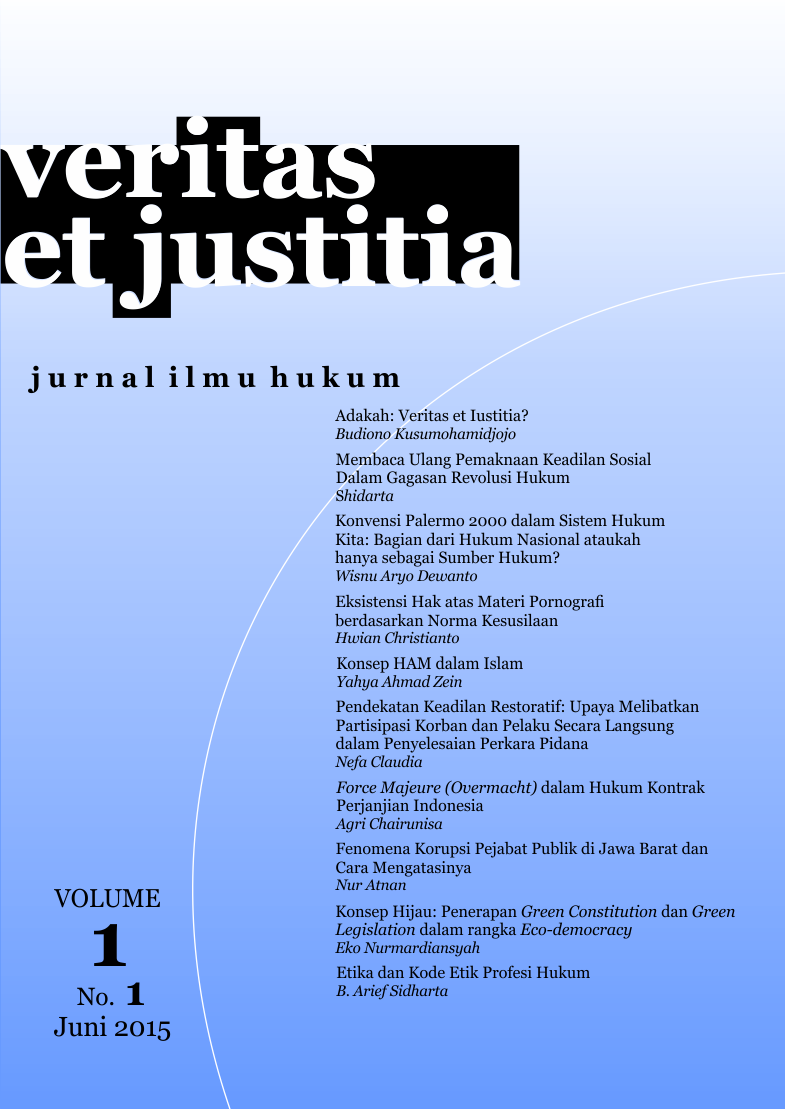FORCE MAJEURE (OVERMACHT) DALAM HUKUM KONTRAK (PERJANJIAN) INDONESIA
DOI:
https://doi.org/10.25123/vej.v1i1.1420Abstract
Abstract
Private law in civil law system is generally contains two major sections: contract law and commercial law. In contract law, parties imposed upon themselves certain obligations. Notwithstanding that, parties may at some point lose their ability to meet their obligations due to overmacht/force majeure. This article examine the legal status force majeure in Indonesia contract law. Force Majeure is intended to protect one party from damage arising from non- performance. The existence of which require the fulfillment of one or two conditions, subjective and objective. The Force Majeure clause is regulated in the Civil Law Code and encompasses situations such as fire, flood, earthquake, strom, typhoon (or other natural disaster), loss of electricity, catalisator damage, sabotage, war, invasion, civil war, rebellion, revolution, military coup, terrorist activities, blockade, embargo, labour dispute, strike, and goverment sanctions.Downloads
Published
Issue
Section
License
Authors who publish with this journal agree to the following terms:
Authors retain copyright and grant the journal right of first publication with the work simultaneously licensed under a Creative Commons Attribution License that allows others to share the work with an acknowledgement of the work's authorship and initial publication in this journal.
Authors are able to enter into separate, additional contractual arrangements for the non-exclusive distribution of the journal's published version of the work (e.g., post it to an institutional repository or publish it in a book), with an acknowledgement of its initial publication in this journal.
Authors are permitted and encouraged to post their work online (e.g., in institutional repositories or on their website) prior to and during the submission process, as it can lead to productive exchanges, as well as earlier and greater citation of published work.
The Journal allow the author(s) to hold the copyright and to retian publishing rights without restrictions.






